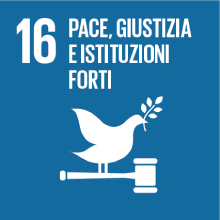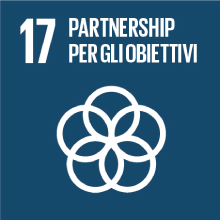U.S.: INTELLECTUAL HISTORY
- Anno accademico
- 2019/2020 Programmi anni precedenti
- Titolo corso in inglese
- U.S.: INTELLECTUAL HISTORY
- Codice insegnamento
- LMJ210 (AF:277491 AR:168523)
- Lingua di insegnamento
- Inglese
- Modalità
- In presenza
- Crediti formativi universitari
- 6
- Livello laurea
- Laurea magistrale (DM270)
- Settore scientifico disciplinare
- SPS/05
- Periodo
- I Semestre
- Anno corso
- 2
- Sede
- VENEZIA
- Spazio Moodle
- Link allo spazio del corso
Inquadramento dell'insegnamento nel percorso del corso di studio
Risultati di apprendimento attesi
a) a confident knowledge of the contribution by different US intellectuals to the making of US foreign policy in the 20th and early 21st century;
b) a confident knowledge of the basic concepts adopted by the different schools of thought ("realism", "exceptionalism", "cold war", "open door imperialism", etc.);
c) a good capacity to treat various kinds of primary and secondary sources;
d) the basic methodological tools for the elaboration of autonomous research work in the field of intellectual history;
e) a good degree of knowledge of the lexicon of the intellectual history of US foreign policy, finalized at the communication of historical and political contents also beyond the scope of the course itself.
Prerequisiti
Arnaldo Testi, Il secolo degli Stati Uniti, Il Mulino, 2006 (or later editions)
Mario Del Pero, Libertà e impero, Laterza, 2008 (or later editions)
Eric Foner, Give Me Liberty! An American History, vol 2, Norton, 2004 (or later editions)
Contenuti
Testi di riferimento
1) the class notes;
2) the slides from the classes, which will be made available on Moodle (https://moodle.unive.it/course/view.php?id=2086 ) before the end of the course;
3) a list of documents and writings by selected authors, which will be made available on Moodle (https://moodle.unive.it/course/view.php?id=2086 ) at the start of the course;
3) the following books and articles:
M. Cox and D. Stokes (eds.), "US Foreign Policy", Oxford, 2012 (Chapp. 3, 4, 5 and 21)
Perry Anderson, "American Foreign Policy and Its Thinkers", London, 2014 (pp 1-235)
5) any other appropriate source, as required by their final paper (see description of exam).
Students who do not attend the classes on a regular basis should prepare the exam on:
1) the class notes;
2) the slides from the classes, which will be made available on Moodle (https://moodle.unive.it/course/view.php?id=2086 ) before the end of the course;
3) a list of documents and writings by selected authors, which will be made available on Moodle (https://moodle.unive.it/course/view.php?id=2086 ) at the start of the course;
4) The following books and articles:
M. Cox and D. Stokes (eds.), "US Foreign Policy", Oxford, 2012 (Chapp. 1, 2, 3, 4, 5, 18 and 21)
Perry Anderson, "American Foreign Policy and Its Thinkers", London, 2014 (pp 1-235)
5) Any other appropriate source, as required by their final paper (see description of exam)
Modalità di verifica dell'apprendimento
The exam consists of two parts.
1) One week before the oral exam, students should turn in a final paper concerning the work of a chosen intellectual among those considered by the program. The paper must have the final characteristics: ca. 3000 words in length, a title indicating clearly the paper's topic and thesis, a final bibliography indicating all the sources that have been used in writing, an indication of the sources for any information that is not absolutely banal or derivated from logical reasoning. The topic of the final paper should be communicated and discussed with the professor well ahead of the oral exam. The final paper accounts for 40% of the final grade. Please note: students can prepare the final paper in small groups if they wish (up to 3 students per group). Plagiarism is not allowed.
2) Given the measures for "social distancing" adopted in response to the "coronavirus emergency", for all the remaining examination sessions of the academic year 2019-20 the oral part of the exam will take place in videoconference. Technical details will be communicated before the exam. The oral exam contributes 60% to the final grade, has an average duration of 20 minutes and consists of two main questions (each one possibly followed by more specific questions) aimed, respectively, at veryfing the students' general knowledge of the program and (ability in rendering a coherent picture concerning the evolution of US foreign-policy thinking during the 20th century; ability in linking the changing interpretations of US foreign policy with the changing intellectual and political contexts in the US; ability to make use of the historical categories adopted in the readings and in class; ability to discuss critically the different interpretations of specific events and processes as they result from the program readings; ability to develop their own reflections on the topics of the course) and at discussing any critical point emerging from the final paper. Please note: the inability to locate the specific events discussed in the course in the broader context of US 20th century history (as from the Requirements section above) constitutes a reason for not passing the exam.
Modalità di esame
Metodi didattici
Altre informazioni
Obiettivi Agenda 2030 per lo sviluppo sostenibile
Questo insegnamento tratta argomenti connessi alla macroarea "Cooperazione internazionale" e concorre alla realizzazione dei relativi obiettivi ONU dell'Agenda 2030 per lo Sviluppo Sostenibile


